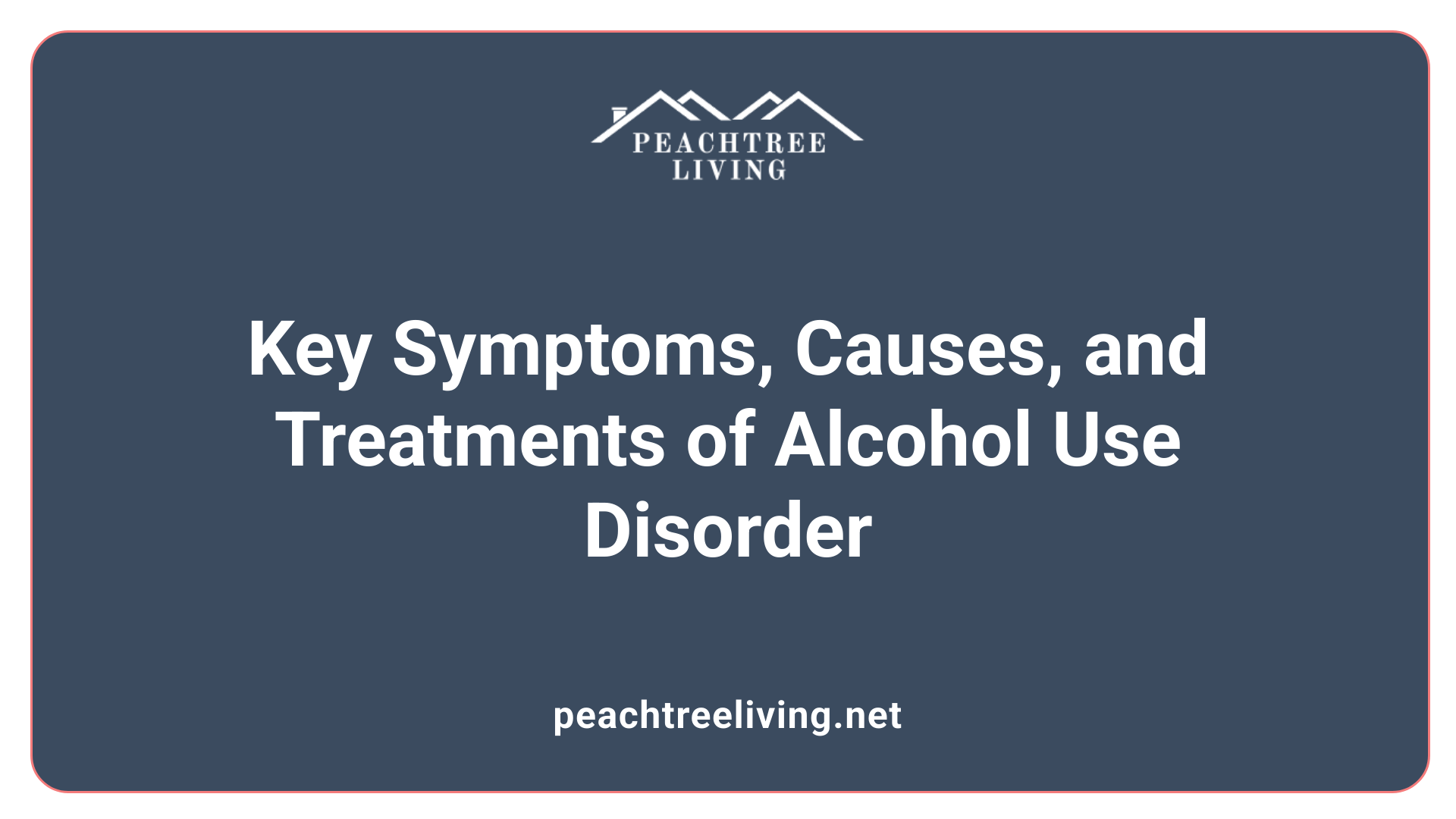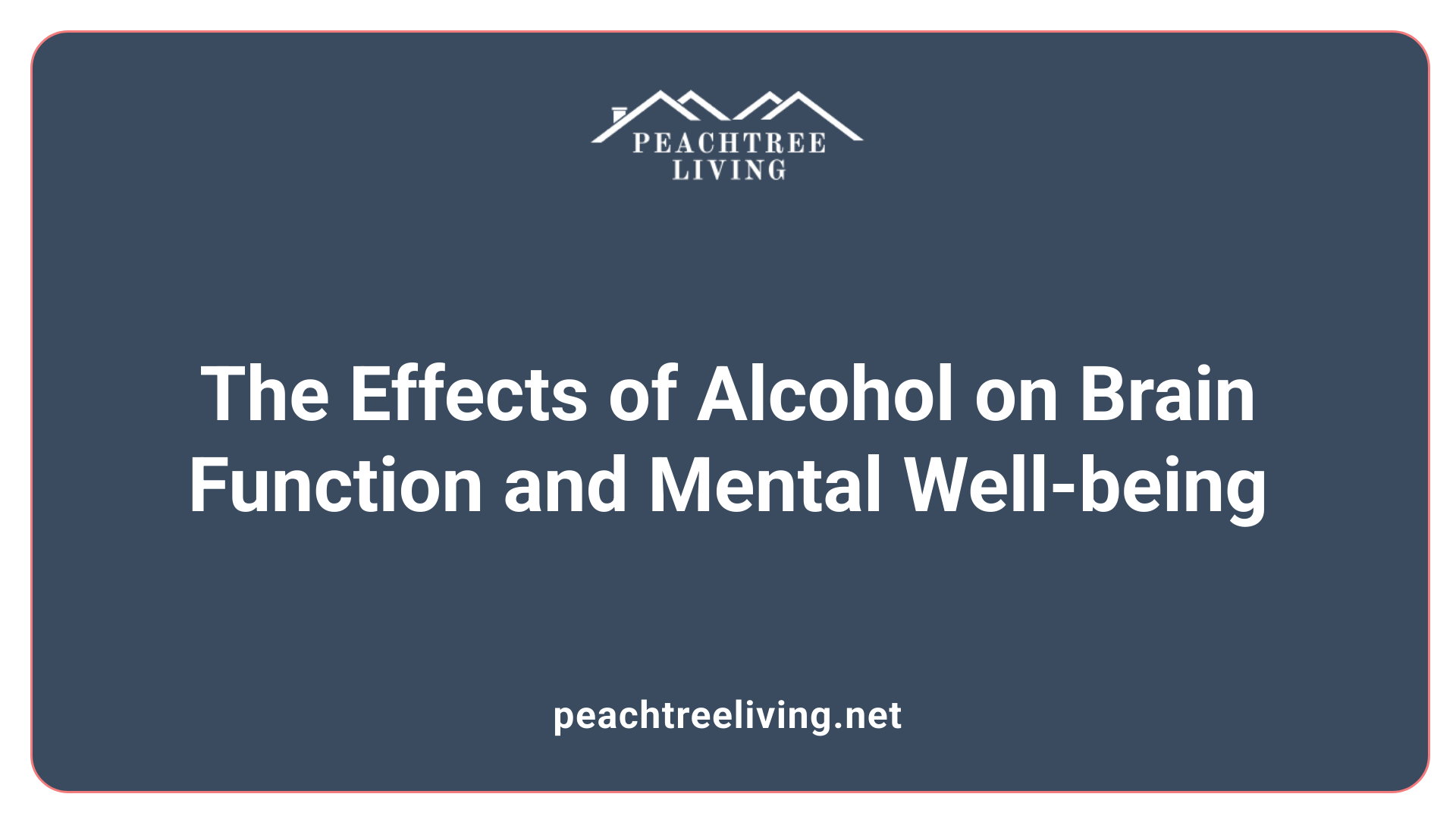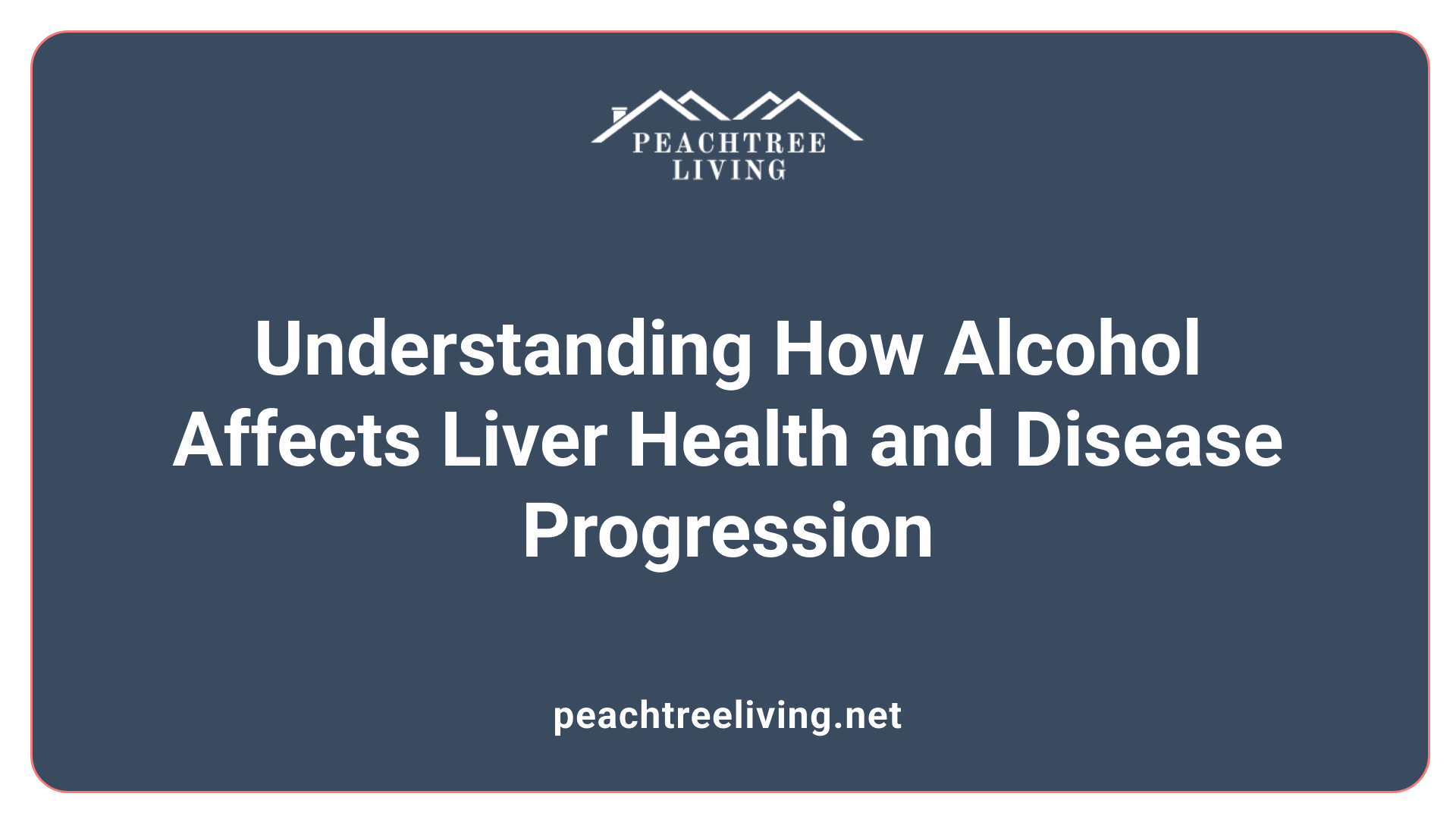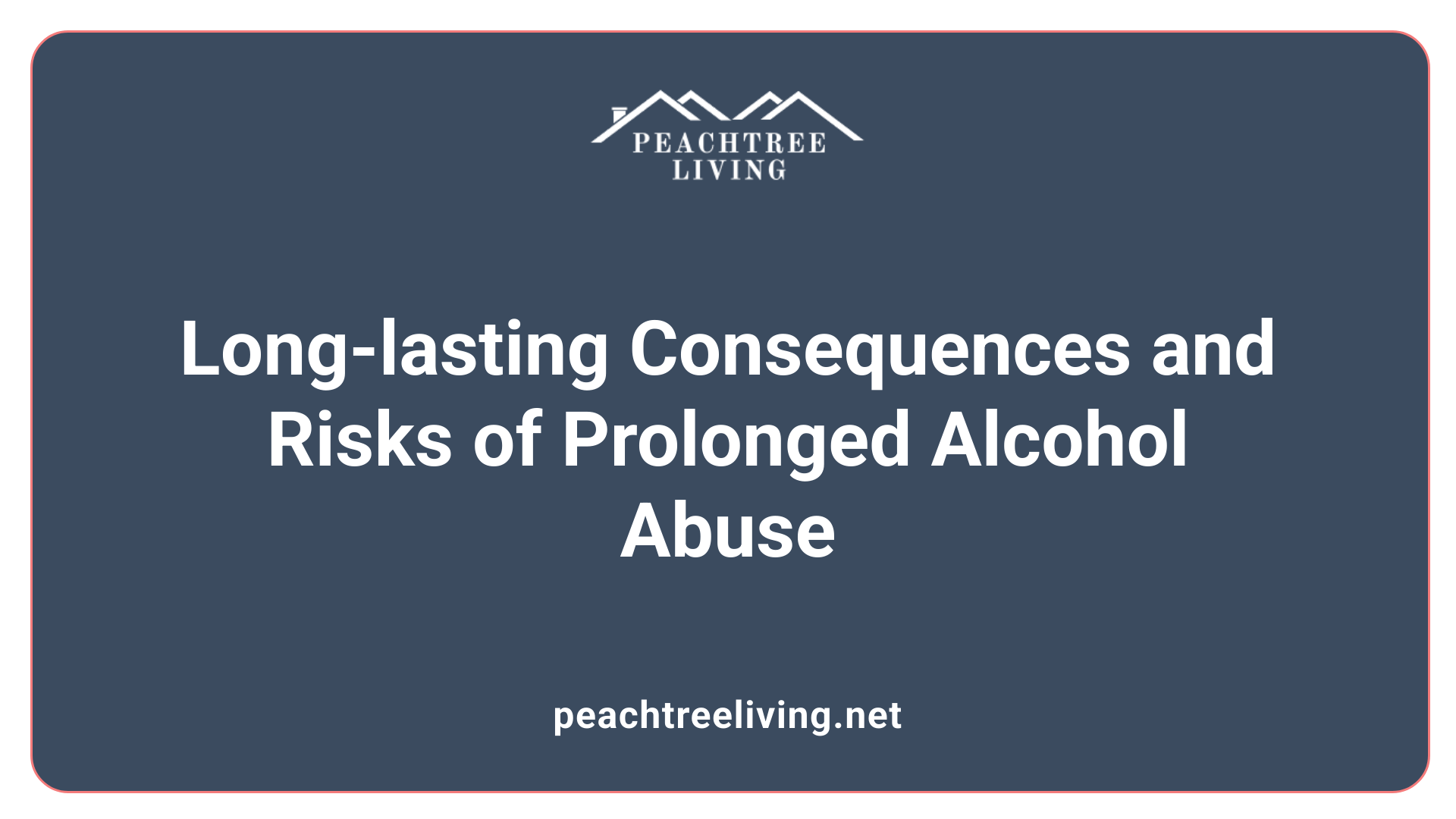Understanding the Wide-Ranging Health Consequences of Alcohol Use
Alcohol consumption, while socially accepted and often considered part of social life, presents significant health risks that can lead to a variety of disorders affecting nearly every organ system. From mental health disturbances to severe physical ailments, the spectrum of disorders caused by alcohol underscores the importance of awareness, prevention, and treatment. This article explores the array of disorders associated with alcohol, their symptoms, causes, and current approaches to management, emphasizing the gravity of alcohol-related health issues.
Alcohol Use Disorder: Core Features and Causes

What are the symptoms, causes, and treatments of alcohol use disorder?
Alcohol use disorder (AUD) is a persistent and complex brain condition that makes it hard for individuals to control their drinking despite clear negative effects on their health, safety, and personal relationships.
Symptoms of AUD include craving alcohol, needing more to achieve the same effect (tolerance), and experiencing withdrawal symptoms like nausea, shaking, hallucinations, and seizures if drinking is reduced or stopped. Many continue to drink even when it leads to personal or professional problems.
The causes of AUD involve a combination of genetic factors, mental health issues such as depression or anxiety, environmental influences, and patterns of early or heavy alcohol use. Family history and psychological vulnerabilities increase the likelihood of developing this disorder.
Diagnosis of AUD relies on established criteria that categorize severity from mild to severe, based on the number of symptoms present. Common assessments are used by healthcare providers to determine the level of impairment.
Treatments are multifaceted and tailored to each person. They typically include behavioral therapy, medication options like naltrexone, acamprosate, or disulfiram, participation in support groups like Alcoholics Anonymous, and structured inpatient or outpatient programs. These interventions aim to reduce alcohol consumption, prevent relapse, and support long-term recovery.
Most individuals can recover or significantly cut down on drinking with appropriate care, although relapse can occur. Early treatment is crucial to improve the chances of a successful outcome.
Physical Health Disorders Linked to Alcohol Consumption
 What are the physical health issues linked to alcohol use?
What are the physical health issues linked to alcohol use?
Alcohol intake is associated with a wide range of serious health problems. One of the most prominent is liver disease, which includes fatty liver, hepatitis, and the development of cirrhosis. These conditions result from alcohol damaging liver cells over time, and cirrhosis is often irreversible if not treated early.
Beyond liver issues, alcohol consumption significantly increases the risk of several types of cancer. Notably, alcohol is linked to higher incidences of liver, breast, mouth, throat, esophageal, and colorectal cancers. The risk tends to rise with the amount and duration of alcohol intake.
Cardiovascular health is also impacted. Excessive drinking can lead to high blood pressure, arrhythmias, alcoholic cardiomyopathy, and a heightened risk of stroke. These effects compromise heart function and increase mortality risks.
On the neurological front, alcohol can cause brain shrinkage, impair cognitive functions, and damage peripheral nerves leading to neuropathy. Severe deficiency of vitamin B1 (thiamine), common in alcohol dependence, results in Wernicke-Korsakoff syndrome, a condition affecting coordination, vision, and memory.
Additionally, alcohol induces pancreatitis, an inflammation of the pancreas, and causes gastrointestinal issues like inflammation, ulcers, and bleeding. It also weakens immune responses, making the body more vulnerable to infections.
During pregnancy, alcohol exposure leads to fetal alcohol spectrum disorders, characterized by developmental disabilities, physical malformations, and cognitive impairments. Collectively, these health issues underscore the severe impact of alcohol on physical well-being.
Neurological and Psychological Impacts of Alcohol

What are the effects of alcohol on mental health and neurological functions?
Alcohol significantly influences both mental health and brain function. It impacts neurotransmitters in the brain by boosting GABA activity, which produces calming effects, and reducing glutamate activity, leading to sedation and impaired cognitive functions.
Over time, excessive alcohol consumption can cause structural brain damage. It leads to brain shrinkage, neuronal loss, and damage to critical areas such as the hippocampus, which is essential for memory and learning. These changes often result in memory problems, difficulty concentrating, and overall cognitive decline.
Alcohol's effects on brain development are especially pronounced during adolescence, when the brain is still maturing. Heavy drinking during these formative years can interfere with normal brain growth and function.
On a mental health level, alcohol use is closely linked to conditions such as depression, anxiety, and psychosis. Heavy drinking can worsen existing mental health disorders and contribute to the development of new psychiatric conditions.
Neurologically, alcohol and its withdrawal can trigger seizures and delirium tremens—a severe form of alcohol withdrawal characterized by hallucinations, agitation, rapid heartbeat, and high blood pressure. Long-term damage may also include alcohol-related brain damage (ARBD) and peripheral neuropathy, which cause nerve damage and muscle weakness.
In summary, alcohol alters brain chemistry, damages brain structures, and exacerbates mental health issues. These changes underline the importance of recognizing alcohol's profound impact on neurological and psychological health.
For more detailed information, search for "Alcohol neurological mental health effects".
Alcohol and Psychiatric Disorders: A Complex Relationship

What are the mental health problems associated with alcohol consumption?
Alcohol use is closely linked to a range of psychiatric issues, including depression, anxiety, psychosis, and hallucinations. Heavy or chronic drinking can cause mood swings and irritability, often mimicking symptoms of mood disorders or aggravating pre-existing mental health conditions.
Depression and anxiety are common among heavy drinkers, with many experiencing relief temporarily from alcohol's calming effects. However, these symptoms often worsen once intoxication wears off, creating a cycle that can be difficult to break. Abstinence can lead to noticeable improvements, highlighting the role alcohol plays in the exacerbation of these conditions.
Psychosis and hallucinations are also associated with heavy alcohol use, especially during intoxication or withdrawal phases. Severe withdrawal symptoms, such as delirium tremens, include hallucinations, confusion, and agitation, which significantly impair mental health.
Alcohol’s influence on brain chemistry increases impulsivity, heightening the risk of self-harm and suicidal tendencies. The disinhibiting effect lowers inhibitions and impairs judgment, leading to risky behaviors and potentially tragic outcomes.
Neurobiological impacts involve disruption in neurotransmitter systems like serotonin, dopamine, and GABA, which regulate mood, emotions, and cognition. This interference can cause emotional instability, neurocognitive impairments, and specific neuropsychiatric syndromes, such as Wernicke-Korsakoff syndrome—an alcohol-related brain disorder caused by thiamine deficiency.
Overall, alcohol's effects on mental health are multifaceted. It not only worsens existing psychiatric disorders but can also initiate new mental health problems. Importantly, many symptoms associated with alcohol abuse tend to improve with sobriety, but persistent alcohol use complicates psychiatric treatment and recovery.
Impact of Alcohol on Liver Health and Disease

How does daily alcohol consumption affect liver health?
Daily alcohol intake causes direct damage to the liver, which is the primary organ responsible for metabolizing alcohol. In the initial stages, excessive drinking often results in fatty liver disease, also known as hepatic steatosis. This condition involves the accumulation of fat within liver cells and is usually reversible if alcohol consumption is stopped early.
If heavy drinking continues, it can lead to alcoholic hepatitis—a condition characterized by liver inflammation. The severity can vary from mild, with slight discomfort, to severe and life-threatening, requiring urgent medical intervention.
Over prolonged periods of alcohol abuse, scars (fibrosis) develop as the liver tissue becomes progressively damaged. This leads to cirrhosis, a chronic and irreversible condition where normal liver tissue is replaced by scar tissue. Cirrhosis impairs the liver's ability to perform vital functions, including detoxification, blood-clotting, and regulation of blood sugar.
Early signs of liver damage include fatty liver and hepatitis.
t. Symptoms of early liver problems can be subtle, such as fatigue, mild abdominal discomfort, or slight jaundice. As the disease advances, symptoms like abdominal swelling, easy bruising, and jaundice may appear.
Diagnostic methods
Diagnosing alcohol-related liver damage involves various tests. Blood tests measure liver enzymes, bilirubin, and other markers indicative of liver injury. Imaging techniques, particularly ultrasound, can visualize liver size and detect fatty deposits or fibrosis.
In some cases, a liver biopsy is performed to assess the extent of damage and confirm cirrhosis or inflammation.
Management and prognosis
Treatment primarily aims at complete abstinence from alcohol. Nutritional support, including vitamins and a balanced diet, is vital to promote liver recovery.
In advanced cases, liver transplantation may be considered, especially when liver failure occurs.
If alcohol consumption is ceased early, the liver can often recover, and progression to cirrhosis can be prevented. However, once cirrhosis develops, the damage is usually permanent, and management focuses on slowing disease progression and managing complications.
Early diagnosis and intervention greatly improve the prognosis, emphasizing the importance of regular screening for individuals with a history of heavy alcohol use.
Long-Term Health Effects and Mortality Risks

What are the long-term health effects of alcohol abuse?
Prolonged alcohol misuse can cause serious health issues that impact both lifespan and quality of life. Chronic alcohol consumption is linked to an increased risk of many cancers, including liver, breast, mouth, throat, esophagus, and colon cancers. The risk rises with higher levels of drinking.
Liver damage is among the most common long-term effects. Conditions such as fatty liver, alcoholic hepatitis, fibrosis, and cirrhosis develop over time, with cirrhosis being irreversible and potentially fatal. Cardiovascular health also takes a hit, with increased chances of high blood pressure, irregular heartbeats, cardiomyopathy, strokes, and heart failure.
Neurological health deteriorates due to brain shrinkage, memory problems, and mental decline, including conditions like Wernicke-Korsakoff syndrome caused by vitamin B1 deficiency. The immune system becomes weaker, making individuals more prone to infections.
In addition to organ damage, long-term alcohol use significantly raises the risk of accidents and injuries, contributing to an estimated 95,000 deaths annually in the United States due to alcohol-related causes.
Overall, the lifelong consequences of excessive alcohol intake include reduced life expectancy, increased chronic disease burden, and diminished quality of life, emphasizing the importance of early intervention and management.
The Urgency of Addressing Alcohol-Related Disorders
The extensive range of disorders caused by alcohol underscores a critical public health challenge. From physical health problems like liver cirrhosis, cancer, and cardiovascular disease to neurological and mental health impairments, alcohol’s impact is profound and long-lasting. Recognizing the early signs, understanding risk factors, and seeking early treatment can significantly mitigate these adverse effects. Effective strategies include behavioral therapy, medication-assisted treatment, and community support, emphasizing prevention and education. Addressing alcohol-related disorders requires a coordinated effort among healthcare providers, policymakers, and communities to reduce incidence, improve treatment access, and promote healthier lifestyles. Improved awareness and intervention can save lives, alleviate suffering, and enhance overall societal well-being.
References
- Alcohol use disorder - Symptoms and causes - Mayo Clinic
- Alcohol Use Disorder: What It Is, Symptoms & Treatment
- Chronic Diseases and Conditions Related to Alcohol Use - PMC
- Understanding Alcohol Use Disorder
- Alcohol Use and Your Health - CDC
- Alcohol - World Health Organization (WHO)
- Alcoholism - Wikipedia
- Alcohol Use Disorder (AUD) - MedlinePlus
- Health Risks of Alcohol: Problems Caused By Chronic Heavy Drinking

